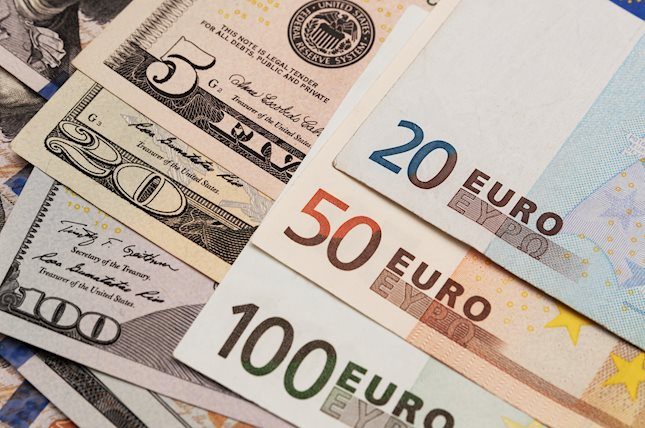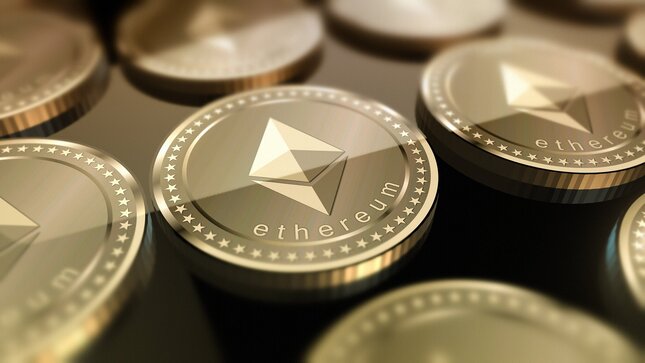Outlook:
We have a dearth of news today to move markets, barring a surprise by the ECB. No one expected a change in policy so early in the QE process and everyone was right, although Mr. Draghi may well sound aggressive, pushing the euro down a bit. Or the absence of Draghi aggressiveness could push it up. This is the kind of thing nobody can forecast. In the US, we get the usual Thursday unemployment claims and the Philly Fed.
We do have some input on the crisis, however. The WSJ has a front page story by Greg Ip with a splen-did headline—“Stock selloff could presage recession (unlikely), trigger a recession (unlikely) or indicate a lack of faith in policy makers (plausible).” Economist Alan Blinder chimes in with the sensible per-spective that markets are scaring themselves, not being scared by hard facts. “China is not as big a deal as investors think, and their reading of oil prices is economically strange.” China should not be freaking us out—it has a negligible effect on the real US economy (less than 1%).
As for financial market contagion, bah. For US equities to track China’s is silly. “Aside from psycholo-gy, this is slightly nutty. The Chinese stock market is not where big Chinese companies go for financing. It is more like a giant casino. And as it recently experienced a huge bubble, no one should be surprised by large price drops. Besides, U.S. holdings of Chinese stocks are relatively small.”
As for oil prices, apart from distress in the oil patch itself, falling oil prices are make almost everyone better off. “By market capitalization, U.S. energy companies account for about 6% of the S&P 500. Fur-thermore, the decline in energy stock prices since July has not been much steeper than that for overall stock prices—which is odd.”
Blinder ends his op-ed with a version of the Keynes quote—“The market can stay irrational longer than you can stay solvent.” This is where we come in. We say a correct perspective based on hard data is only a starting point, not the ending point. Financial markets, whether oil, equities or FX, set prices based on facts, to be sure, but also on that cloud of feelings we call sentiment and we use indicators on the chart to measure sentiment.
By now even the most rabid of foes of technical analysis have to concede that the chart counts. Old-timey advisors like O’Neill have long recommended selling losing positions when they reach a pre-determined loss, whether it’s 8% or 20%. Factually, data shows that controlling losses is as important, if not more important, than picking a rising star. Gann said if you do not control losses, it’s not a ques-tion of whether you will go broke, but when.
For Blinder or anyone else to stop the story at the fundamental facts, and to denigrate market players for being irrational, is to miss that selling losing positions is perfectly rational and good management. But let’s not neglect another bit of market lore—the best time to buy is when there is blood in the streets. Everyone knows this one and a crowd is no doubt gathering to pounce on what appear to be oversold and undervalued assets. Eventually the crowd swells past a tipping point and we get a rally. We may not be able to call the bottom until after it’s in, but we sure know how to identify the early stages of a ral-ly—momentum leads. With any luck, the supposedly brainy guys who dismiss chart indicators, even the most basic (like momentum), will get left behind.
And at Davos, we have the IMF chief Lagarde admonishing China to be more transparent about its FX policies and plans. An advisor to President Xi gave a lengthy presentation saying, among other things, China will manage the yuan against its new basket. The advisor, Fang Xinghai, also gavr an interview to the WSJ. The gist of it is the rest of the world should stop looking at day-to-day stuff and start focusing on China’s transition from investment-led to consumption-led. Fang said China will not make the mis-take of stimulus is the face of slowdown. “The biggest risk for China is not to slow down in a measured way, but to stimulate the economy to such an unrealistic speed that it implodes suddenly and goes down in flames.” The focus will be to accelerate “structural reforms in the supply side of the econ-omy to better meet changing consumer demands.”
This will entail closing zombie companies and writing off bad debt as well as employing those ghost cities to house farmers leaving the land. Hmm, wonder how the owners will feel about that, assuming they get a choice. And here comes the kicker: Fang said “China is blessed with the strong and long-term focused leadership of President Xi Jinping, the best leader in the world. With his leadership, we can deal with the inevitable risks and volatilities arising out of the transition.”
Best in the world? Oh, oh. Leader worship has not worked out so well for the Chinese.
Bottom line, we now know what China will do—nothing, or very little. The yuan will be managed against the basket, which gives everyone a real headache. It’s not exactly a quoted entity, although Bloomberg devised a proxy. But a commitment to managing the yuan against the basket takes a one-time big devaluation off the table. We may be over-interpreting, but if that is what the folks in Asia are hearing as well as the folks at Davos, pressure on the yuan may fade away. This means capital outflow will fall to a trickle, too. It’s a subtle, back-door way of telling speculators “don’t bother trying to push us into a devaluation—ain’t gonna happen.” We look forward to seeing the next round of hedge fund manager interviews.
Further, China knows full well it needs to kill off zombie companies, discard excess capacity, reduce debt, and keep going toward a consumer-led economy. If that is not good for other economies who have been replying on (say) exports of raw materials to China, tough luck. If Western equity markets chose to follow the Shanghai, that’s their problem. In a nutshell, China does not accept responsibility for upset-ting the rest of the world. This is the stance, mostly, that the US takes, too.
As for the benchmark euro/dollar, we have to hear what Draghi says this morning, but overall, most economists in an FT story today continue to hold to the divergent monetary policy thesis that has the euro on a downward trajectory. There are plenty of roadblocks, including a cowardly Fed that may post-pone the second hike from March to June, depending on developments. But a falling euro is the trans-mission mechanism for getting some inflation, the primary ECB goal, and while we have already had a big drop, there is more to come. We just don’t know where the secondary recovery highs may lie before then.
Note to Readers: We were nominated (along with four others) for an award for Best FX Analysis at FXstreet.com. A few years ago our book with Vicki Schmelzer, the FX Matrix, won best FX book of the year. We don’t expect to win this time but it would sure be nice! To vote for Rockefeller Treasury Services, you have one week starting Thursday, Jan 21. That’s today.
| Current | Signal | Signal | Signal | |||
| Currency | Spot | Position | Strength | Date | Rate | Gain/Loss |
| USD/JPY | 116.89 | SHORT USD | STRONG | 12/28/15 | 120.48 | 2.98% |
| GBP/USD | 1.4148 | SHORT GBP | STRONG | 11/06/15 | 1.5137 | 6.53% |
| EUR/USD | 1.0903 | SHORT EURO | WEAK | 01/04/16 | 1.0905 | 0.02% |
| EUR/JPY | 127.43 | SHORT EURO | STRONG | 12/04/15 | 132.38 | 3.74% |
| EUR/GBP | 0.7706 | LONG EURO | WEAK | 10/23/15 | 0.7194 | 7.12% |
| USD/CHF | 1.0053 | LONG USD | STRONG | 01/04/16 | 0.9979 | 0.74% |
| USD/CAD | 1.4479 | LONG USD | STRONG | 10/28/15 | 1.3235 | 9.40% |
| NZD/USD | 0.6419 | LONG NZD | WEAK | 12/11/16 | 0.6560 | -2.15% |
| AUD/USD | 0.6906 | SHORT AUD | STRONG | 01/08/16 | 0.7020 | 1.62% |
| AUD/JPY | 80.73 | SHORT AUD | STRONG | 12/10/15 | 88.80 | 9.09% |
| USD/MXN | 18.6101 | LONG USD | STRONG | 12/07/15 | 16.7258 | 11.27% |
-------
Who were the best experts in 2015? Have your say and vote for FXStreet's Forex Best Awards 2016! Cast your vote now!
-------
This morning FX briefing is an information service, not a trading system. All trade recommendations are included in the afternoon report.
Recommended Content
Editors’ Picks

AUD/USD: Further range bound should not be ruled out
AUD/USD managed to regain the smile and challenged the key 0.6500 hurdle on the back of the knee-jerk in the US Dollar and ahead of key data releases in Australia and the US labour market.

EUR/USD maintains the bearish tone
Despite Tuesday’s acceptable advance, EUR/USD is expected to remain under the microscope in light of political effervescence in France and upcoming key results in US fundamentals along with Chair Powell’s speech.

Gold keeps struggling for direction
Following Monday's retreat, Gold stabilizes and trades in a narrow band below $2,650. The benchmark 10-year US Treasury bond yield stays flat near 4.2% ahead of Fedspeak, making it difficult for XAU/USD to gather directional momentum.

Ethereum Price Forecast: Investors purchased $1.2 billion of ETH as key pattern suggest rally toward $4,868
Ethereum (ETH) is down 1% on Tuesday despite heavy accumulation across spot exchanges and investment products. The number one altcoin could rally to tackle its all-time high resistance of $4,868 if it maintains a rounded bottom patern and overcomes a key trendline resistance.

The fall of Barnier’s government would be bad news for the French economy
This French political stand-off is just one more negative for the euro. With the eurozone economy facing the threat of tariffs in 2025 and the region lacking any prospect of cohesive fiscal support, the potential fall of the French government merely adds to views that the ECB will have to do the heavy lifting in 2025.

Best Forex Brokers with Low Spreads
VERIFIED Low spreads are crucial for reducing trading costs. Explore top Forex brokers offering competitive spreads and high leverage. Compare options for EUR/USD, GBP/USD, USD/JPY, and Gold.